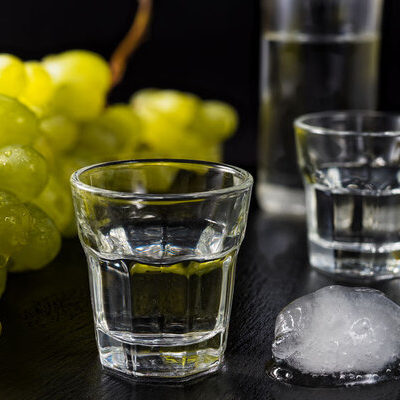
Arak
also known as Milk of Lions
What is Arak?
Arak is a popular Middle Eastern spirit made from grapes and flavored with anise seeds. The name means “sweat”, as the drops are said to represent perspiration. It is similar to the Greek and Cypriot drink ouzo, which is also made from grapes and anise.
The top six most popular brands of Arak are:
- El Massaya
- Ksarak
- Zumot Distilleries
- Domaine des Tourelles
- Clos St. Thomas
- Chateau Nakad
Origin of Arak
This alcoholic drink has a long history in Arabic countries. This beverage evolved during the invention of alembic distillation in Arabia around the 12th century. After its introduction, it became popular in the Middle East, particularly in Lebanon where it is often referred to as the country’s traditional drink. Home-brewed Arak is regularly exported to America and Europe for Lebanese individuals who cannot resist drinking it. This beverage has also experienced a small revival with younger generations of Lebanese nationals.
Many bars dilute alcoholic beverages like vodka with this drink to cut costs. This alcoholic beverage has also become popular in Israel and other countries. One of Israel’s leading brands of this alcohol is Kawar Arak. This brand’s production of the spirit dates back to 1950 in Nazareth. Today, this alcoholic beverage remains popular in the region. Connoisseurs even recommend the Milk of Lions as an accompaniment for a variety of mezze.
Function
This alcoholic beverage performs a palate-cleansing function. Hence, it can remove the taste of other foods from the palate. Commonly consumed ice-cold, arak can also be enjoyed with tabbouleh or hummus.
Nutrition
A 1 ounce serving of this alcoholic beverage provides:

This alcoholic beverage has certain health benefits, such as improving blood flow, keeping the body warm, and boosting strength. It can also help improve stress levels and prevent stroke. Furthermore, it has a soothing effect that can improve wound healing and clear rashes.
However, when consumed in excess this alcoholic beverage can have negative effects on the body. Drinking too much alcohol may affect memory capability. Also, it can lead to gastritis, a particular health challenge that causes inflammation in the stomach and injury to the stomach wall.
Commercial Production
This alcoholic beverage is produced by first harvesting grapes and anise seeds. The grapes and anise seeds are squeezed and left in a barrel for about three weeks to ferment. Next comes distillation, which often involves two distillation steps.
After complete fermentation, the squeezed fruits are put in a Karkeh for the first distillation. The Karkeh is a native distillation tool in Lebanon. The alcohol produced from the first distillation (Spirto) then undergoes another distillation. This second distillation involves transferring the alcohol to the lower part of the Karkeh, where water is added to reduce the alcohol percentage.
Then, the top of the Karkeh is filled with water. Simultaneously, the lower part is heated to about 212°F to ensure that only the alcohol evaporates. Bear in mind that the first step produces pure alcohol, which is not recommended for drinking, and the second step produces Arak. This alcoholic drink should be stored in bottles and closed with a lid. Leaving it open will deteriorate the quality due to oxidation.
Arak recipes
This spirit is used in making a variety of drinks. Some popular recipes include:
FDA regulation
The FDA does not have any regulations regarding this alcoholic beverage. However, the TTB offers standards of identity for various types and classes of distilled spirits. The agency also monitors the import of alcohol, such as arak, into the United States.
References
Teclemariam, Tammie. “Understanding ARAK, an Ancient Spirit with Modern Appeal.” Winemag.com, Wine Enthusiast, 31 Mar. 2021, www.winemag.com/2020/03/09/arak-middle-eastern-spirit-modern-appeal/.
“Arak: Raise Your Glass.” Executive Magazine, Executive Magazine, 17 Oct. 2014, www.executive-magazine.com/opinion/leaders/arak-raise-your-glass.
Halfin, Jessica. “Meet the next Big Thing on Israel’s Culinary Scene – Arak.” Israel21c.Org, ISRAEL21c, 20 Feb. 2018, www.israel21c.org/meet-the-next-big-thing-on-israels-culinary-scene-arak/.
